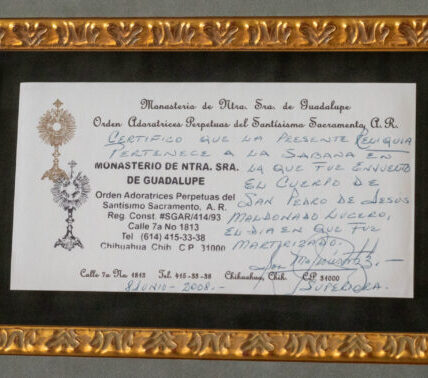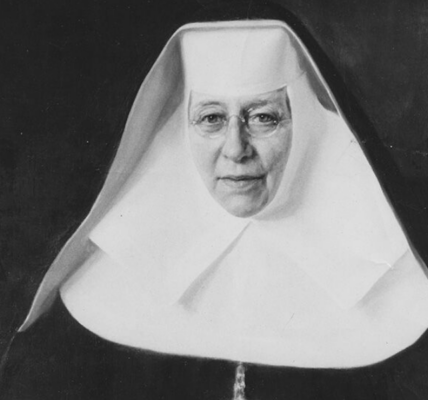On 25 April, we celebrate the Feast Day of Saint Mark the Evangelist. But who is Saint Mark?
St. Mark, whose full name was John Mark, wrote one of the four gospels. Mark is not mentioned in the Bible unless he was the young man who fled from the Garden of Gethsemane, as we read in Mark 14:51-52. A young man, wearing nothing but a linen garment, was following Jesus. When they seized him, he fled naked, leaving his garment behind.
In Peter 5:13, we read that Mark was related to Peter: Your sister church in Babylon, chosen together with you, sends you greetings, and so does my son Mark.
By reading other books in the New Testament, we discover that Mark’s mother’s name was Mary and that Mark was from Jerusalem.
Mark accompanied Saint Paul and Saint Barnabas as an assistant on several missionary journeys. In later years, Mark moved to Rome and worked with Saints Peter and Paul. (Acts 13:3-13; 15:36-39; 2 Timothy 4:11; Philemon 24).
Saint Mark’s Gospel gives us a detailed and intense picture of Christ’s life, as might be expected from an eyewitness. It gives specifics in terms of times, numbers, and places (e.g., Ma,rk 1:35; 4:35; 5:20; 7:40; 8:10; 11:11).
St Mark’s Gospel is the shortest of the four and was written for the Christians in Rome. For their benefit, he used several Latin words and explained unfamiliar Jewish customs to them (Mark 7:3; 12 Mark 4:12; 15:16,42).
Mark’s Gospel tells the story of Jesus’ life straightforwardly. Although he includes many of Jesus’ words, Mark is more interested in what Jesus did. Throughout, we see Jesus leading us—the new Israel—on a new Exodus. Mark includes one story that none of the other Gospels mention. After Jesus had been arrested, the authorities led him off to the high priest.
Saint Mark’s writing has several main aims. One key goal was to encourage readers to reach the same conclusion as the centurion at the foot of the cross, who declared, “Truly, this man was the Son of God” (Mark 15:39). To support this aim, he emphasizes the numerous miracles performed by Christ.
Mark also wanted to show that Christ was fully human, the “Son of Man.” To that end, he included many details not found in other Gospels, including how Christ felt sorry for people (1:41), how He became angry (3:5), how He felt disappointed (8:12), became annoyed (10:14), and even expressed His love (10:21).
Five virtues of Saint Mark that all men can imitate.
Courage
Saint Mark had courage. Mark was tortured and put to death because of his willingness and courage in proclaiming the message of Christ. Because of his faith, Saint Mark had a rope tied around his neck and was dragged through the streets until he was dead. His sheer determination to share the Gospel is an example of true courage.
Devotion to Family
Mark’s mother was an example of what it meant to be a Servant of Christ, as she helped many very early Christians. Many hold that Mark and his mother had a close relationship. It’s believed that Mark left one of his first missionary voyages early because he missed his mother. Mark’s devotion to both his biological and spiritual family was immense.
Mercy
Mark imitated Christ’s forgiveness, even for those who persecuted him. It’s safe to assume that he would have shared in Christ’s prayer: “Father, forgive them, for they know not what they do” (Luke 23:24).
Truthfulness and Honesty
Saint Mark preached the truth to a world that desperately needed Christ’s message, even though sharing that message was dangerous. He put into practice Christ’s exhortation, “You will know the truth, and the truth will set you free” (John 8:32).
Diligence
St. Mark was very busy traveling, preaching, and teaching alongside the other disciples. In addition to all this, he found time to write the Gospel of Mark, documenting eyewitness accounts from fellow disciples. His steadfast dedication to serving Christ was truly exceptional!




